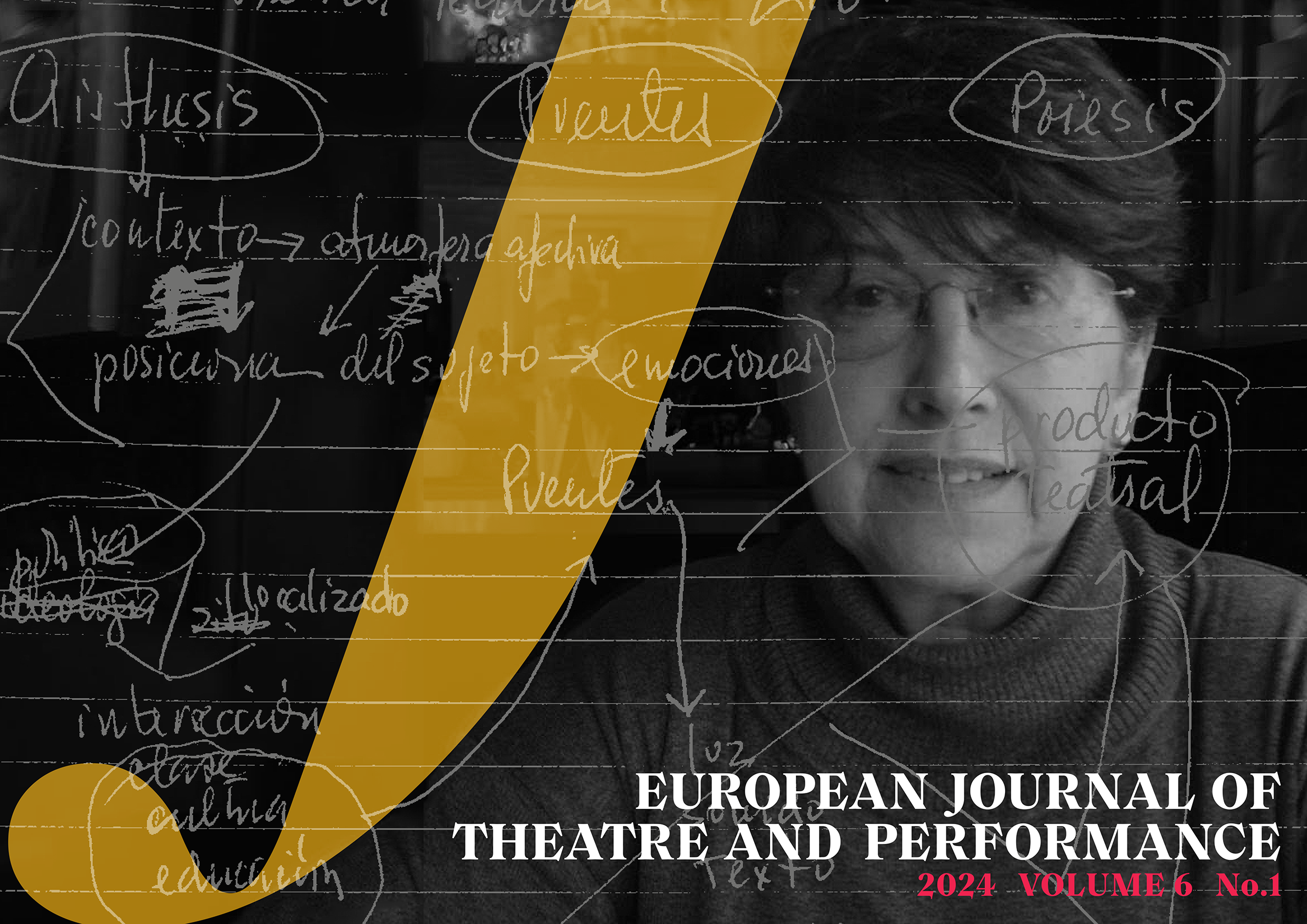Schizodramaturgy: On the Phenomenology of the Future in Tetsuo Kogawa’s Airwaves-art (2023)
DOI:
https://doi.org/10.21827/ejtp.7.42278Keywords:
Tetsuo Kogawa, Félix Guattari, Gilles Deleuze, schizoanalysis, radio, conspiracyAbstract
In this essay, I develop a psycho-dramaturgical argument, exploring conspiracytheories and airwaves from a schizoanalytic perspective. This perspective findsa departure point in the concept of theatre in the works of Tetsuo Kogawa (1941), Félix Guattari (1930–92), and Gilles Deleuze (1925–95). The relevance andconcatenation of the three central actors — Deleuze, Guattari, and Kogawa— is underscored, particularly within the context of the schizoradios of the 1970sand 1980s. There, schizoanalytic practices intertwine particularly with the questionof theatre. While Deleuze holds significance in this context, the primary focus rests onthe contributions of Guattari and, mainly, Kogawa. This is the perspective from whichan examination of theatre concepts in the discourse of schizoanalysis is undertakenhere. The analysis comprises two main lines of inquiry. First, it investigates the psychodramaturgy in the thought of Deleuze and Guattari, examining their individual contributions. Second, the essay delves into Kogawa’s 2023 performance, Airwavesart, with a three-fold analysis corresponding to the performance’s three side-titles. The steps outlined contribute to a comprehensive understanding of schizodramaturgy, drawing from philosophical, psychotherapeutic, and artistic perspectives.The article aims to analyse the interplay between schizoanalytical practicesand modes of subjectivation, particularly those that give rise to enclosedand homogeneous imaginaries.
Published
Issue
Section
Copyright (c) 2024 Ferdinand Klüsener

This work is licensed under a Creative Commons Attribution 4.0 International License.

